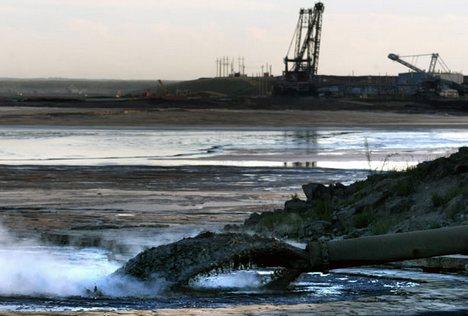Following a string of oil spills, TransCanada’s Keystone I tar sands oil pipeline has been indefinitely shut down, and banned from restarting operations. Today, the Pipelines and Hazerdous Materials Safety Administration (PHMSA) issued a Corrective Action Order, which stops use of the pipeline until the regulator determines that safety problems have been corrected.
In the order, Jeffrey Wiese, associate administrator for pipeline safety at the Department of Transportation, wrote:
I find that the continued operation of the pipeline without corrective measures would be hazardous to life, property and the environment. Additionally, after considering the circumstances surrounding the May 7 and May 29, 2011 failures, the proximity of the pipeline to populated areas, water bodies, public roadways and high consequence areas, the hazardous nature of the product the pipeline transports, the ongoing investigation to determine the cause of the failures, and the potential for the conditions causing the failures to be present elsewhere on the pipeline, I find that a failure to issue this Order expeditiously to require immediate corrective action would result in likely serious harm to life, property, and the environment.
The Keystone I pipeline has spilled 12 times since beginning operation less than one year ago. Late last year, TransCanada had to dig up portions of the pipeline when abnormalities were discovered.
Experts have raised concerns that tar sands oil pipelines pose serious safety risks due to the corrosive, acidic quality of tar sands oil, which is also pumped at higher temperatures and pressures than conventional oil.
This is a major blow for TransCanada, who is seeking approval from the State Department to construct the Keystone XL pipeline. The $13 billion Keystone XL pipeline would significantly increase the Canadian export of of dirty tar sands bitumen to the U.S. by as much as 510,000 barrels a day. This project would pump crude from Canada to refineries in Texas, crossing the Ogallala Aquifer, America’s largest aquifer and a source of drinking water for two million people.
As required by the Corrective Action Order, TransCanada submitted a restart plan which will be thoroughly reviewed by the US Department of Transportation PHMSA to ensure that TransCanada has satisfied all requirements needed to ensure safety of the line.
Image credit: Celsias.
Subscribe to our newsletter
Stay up to date with DeSmog news and alerts






